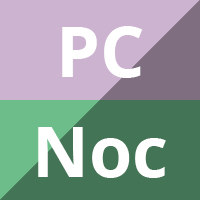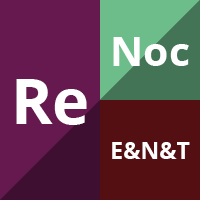
Pharmacological treatment of depression in people with a primary brain tumour
Abstract Background This is the second updated version of the Cochrane Review published in Issue 3, 2010 and first updated in Issue 5, 2013. People with a primary brain tumour often experience depression, for which drug treatment may be prescribed. However, they are also at high risk of epileptic seizures, cognitive impairment, and fatigue, all […]

Interventions to help support caregivers of people with a brain or spinal cord tumour
Collapse all Expand all Abstract Background The diagnosis and treatment of a brain or spinal cord tumour can have a huge impact on the lives of patients and their families with family caregiving often resulting in considerable burden and distress. Meeting the support needs of family caregivers is critical to maintain their emotional and physical health. […]

Interventions to help support caregivers of people with a brain or spinal cord tumour
Abstract Background The diagnosis and treatment of a brain or spinal cord tumour can have a huge impact on the lives of patients and their families with family caregiving often resulting in considerable burden and distress. Meeting the support needs of family caregivers is critical to maintain their emotional and physical health. Although support for […]

Psychosocial interventions for informal caregivers of people living with cancer
Abstract Background Increasingly, cancer is recognised as a chronic condition with a growing population of informal caregivers providing care for cancer patients. Informal caregiving can negatively affect the health and well‐being of caregivers. We need a synthesised account of best evidence to aid decision‐making about effective ways to support caregivers for individuals ‘living with cancer’. […]

Systematic screening and assessment of psychosocial well‐being and care needs of people with cancer
Abstract Background Receiving a diagnosis of cancer and the subsequent related treatments can have a significant impact on an individual’s physical and psychosocial well‐being. To ensure that cancer care addresses all aspects of well‐being, systematic screening for distress and supportive care needs is recommended. Appropriate screening could help support the integration of psychosocial approaches in […]

Olanzapine for the prevention and treatment of cancer-related nausea and vomiting in adults
Abstract Background Olanzapine as an antiemetic represents a new use of an antipsychotic drug. People with cancer may experience nausea andvomiting whilst receiving chemotherapy or radiotherapy, or whilst inthe palliative phase of illness. Objectives To assess the efficacy and safety of olanzapine when used as an antiemetic in the prevention and treatment of nausea and […]

Drug therapy for symptoms associated with anxiety in adult palliative care patients
Abstract Background This is an update of a Cochrane Review first published in 2004 (Issue 1) and previously updated in 2012 (Issue 10). Anxiety is common in palliative care patients. It can be a natural response to the complex uncertainty of having a life-limiting illness or impending death, but it may represent a clinically significant […]

Therapeutic exercises for affecting post-treatment swallowing in people treated for advanced-stage head and neck cancers
Abstract Background Head and neck cancer treatment has developed over the last decade, with improved mortality and survival rates, but the treatments often result in dysphagia (a difficulty in swallowing) as a side effect. This may be acute, resolving after treatment, or remain as a long-term negative sequela of head and neck cancer (HNC) treatment. […]

Educational interventions for the management of cancer-related fatigue in adults
Abstract Background Cancer-related fatigue is reported as the most common and distressing symptom experienced by patients with cancer. It can exacerbate the experience of other symptoms, negatively affect mood, interfere with the ability to carry out everyday activities, and negatively impact on quality of life. Educational interventions may help people to manage this fatigue or […]

Hydromorphone for cancer pain
Abstract Background Cancer pain is an important and distressing symptom that tends to increase in frequency and intensity as the cancer advances. For people with advanced cancer, the prevalence of pain can be as high as 90%. It has been estimated that 30% to 50% of people with cancer categorise their pain as moderate to […]

